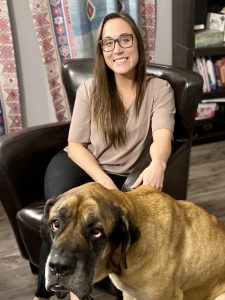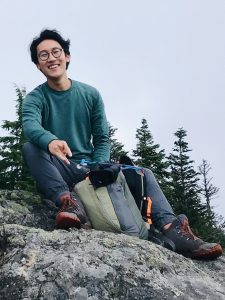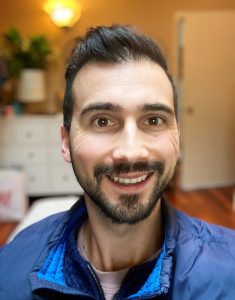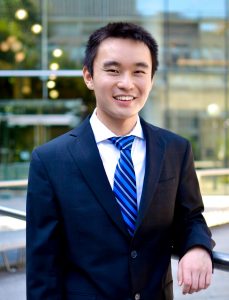MEHAR KANG, MD
PGY5, Fraser Track

Why were you interested in UBC to complete your Psychiatry residency training?
The UBC Psychiatry program truly resonated with me. I have always been fascinated by the complexity of the brain and behaviour, often reflecting on how the same organ capable of innovation and resilience could fall prey to various pathological processes leading to debilitating despair and dysfunction. We often witness patients and their families endure isolation and fear due to the unfair burden of stigma. My experiences in medical school enabled me to see how psychiatry can facilitate the return of well-being and function to those affected by mental illness.
UBC offers a comprehensive and contemporary residency training program. In particular, I was interested in the opportunity to work and learn in BC in order to serve the diverse populations at large. These are the very communities which inspired me to pursue medicine and a career of lifelong learning; the beautiful farmlands, mountains, and waters of BC have played a pivotal role in who I am today. The program recognizes the therapeutic, diagnostic, and collaborative importance of listening to our patients from a humanistic standpoint. The intersection of clinical acumen and compassionate patient care is one of several reasons why I chose this program. UBC offers a holistic and biopsychosocial approach to better understand suffering and the human condition, and I am inspired by the advocacy and routine collaboration that exists between psychiatrists, other physicians, allied health professionals, and community supports. It is home to experts in psychopharmacology, psychotherapy, biological psychiatry, and various subspecialty disciplines.
In your opinion, what are the strongest aspects of the UBC Psychiatry residency training program?
UBC Psychiatry is held in high regard and the esteemed clinical faculty are at the core of this institution. The team spirit, emphasis on serving the needs of a diverse patient population, and a focus on evidence-based practice are some of the greatest highlights for me personally. We are exposed to a great variety of clinical practice sites and subdisciplines across British Columbia, and have long-term psychotherapy training embedded in our curriculum as well. There is a good balance of both teaching and service-based learning and I have seen my senior residents thrive with steady supervision and independence. UBC is at the forefront of research and innovation in psychiatry, addictions, and mental health initiatives as a whole.
During my first year, I was grateful for the unique off-service electives I was able to select to supplement my core rotations, including endocrinology and geriatric medicine. We also receive an elective block right in first year to pursue our individual interests; I was able to participate in consultation-liaison psychiatry as a result.
Can you describe some of the unique learning opportunities the program has offered?
In addition to what I’ve described above, the program has some very unique features including a variety of interest groups and initiatives for its members. I feel fortunate to be part of the Cultural Psychiatry Group which discusses sociocultural contexts of illness including systemic issues like racism and ageism to address the pressing needs of our growing and diverse populations. It allows residents to be passionate about knowledge dissemination, interdisciplinary dialogue, and narrative medicine. I’ve also valued the opportunity to participate in medical education and student teaching. Most importantly, I’m grateful for the indirect learning opportunities that exist via mentorship from our generous faculty and staff.
What would be the main message you wish to convey to someone who is interested in obtaining their psychiatry residency training at UBC?
Come join the UBC family! This is an exciting time for psychiatry, and our program is at the frontier of clinical practice as well as innovation in neuroimaging, psychopharmacology, neurostimulation and technology. By choosing UBC Psychiatry, you will be entering a dynamic field poised to make an extraordinary impact in mental health care.
CHRISTINE KENNEDY, MD
Graduated 2023/2024, Prince George Track

Why were you interested in UBC to complete your Psychiatry residency training?
I completed my medical degree at UBC in the Northern Medical Program. I was impressed by the intellectual challenge offered by Psychiatry; the breadth and diversity of the program uniquely aligned with my interests and career aspirations. I embraced the meaningful opportunity to work closely with marginalized populations, including patients with mental illness, Indigenous patients, and those with substance use disorders. At UBC there was an exceptional example set by psychiatrists. Psychiatry preceptors were knowledgeable, well rounded, and consistently demonstrated a passion for teaching and mentorship. I was inspired and excited for the opportunity to learn and practice at UBC with preceptors whom I held in such high esteem.
In your opinion, what are the strongest aspects of the UBC Psychiatry residency training program?
At UBC you truly feel that you are part of the program and an integral part of its legacy and future. The program directors consistently listened to our feedback and implement changes to continue to improve the program. In Prince George, I was treated as a future colleague. The staff respected that we are learners and are passionate about teaching. Our preceptors valued our opinions, our time, and demonstrated their gratitude for having us as members of their team. Furthermore, the faculty’s commitment and passion for teaching provided me an incredibly diverse, in-depth, educational experience. Our education is their priority, and I felt I gained invaluable knowledge and experience that will serve me well in my future as a practicing Psychiatrist.
Can you describe some of the unique learning opportunities the program has offered?
What I love about the UBC Psychiatry program is that they truly encourage your continued evolution as a well-rounded physician. For example, they support attendance at diverse conferences, encourage residents to seek out their own psychodynamic therapy, and allow time and space for residents to be actively engaged in teaching medical students. Teaching and being an active member of the medical education curriculum in Prince George was incredibly rewarding. There were also a number of unique subspecialty rotations that, even being in the North (Prince George), I was supported to go to. For instance, at Saint Paul’s Hospital (SPH) I did a Reproductive Psychiatry rotation. I was welcomed graciously to the SPH site, and it was an incredible learning experience. We, in all the four tracks of UBC Psychiatry, always feel as though we’re part of the broader UBC Psychiatry program and community.
What would be the main message you wish to convey to someone who is interested in obtaining their psychiatry residency training at UBC?
Choosing Psychiatry at UBC continues to be one of the most important decisions I’ve made in my life. During my own CaRMS visit, the wonderful UBC Psychiatry Program Director said that we would likely choose a University based on so many things beyond the program itself: the location, our family, our roots, or perhaps our desire for outdoor adventure. I admired this sentiment, but through the uncertain times in 2020 when so much beyond the residency had changed, this program was a stable, supportive foundation. I felt a deep connection to the UBC Psychiatry program, staff and community, who consistently encouraged my learning, my work-life balance, and my journey of personal growth. I am incredibly grateful to this UBC Psychiatry residency program, and hope that I can continue to give back even a fraction of what I feel I received.
DANIEL LU, MD
PGY5, Vancouver Track

Why were you interested in UBC to complete your Psychiatry residency training?
Near the end of medical school, I realized how quickly it had gone by and how daunting the idea of being a doctor actually was the nearer to the title I became. That feeling drove me to want to train through a comprehensive, rigorous, and high-quality residency program so that by the end of it I could be assured that I would be capable of doing right by my patients, colleagues, and myself. Medical school was also challenging and going into residency I knew that to achieve my goals I needed to be well supported and have a reasonable work-life balance. For my wellness and my hope to become an exceptional psychiatrist, UBC Psychiatry felt like the right program.
In your opinion, what are the strongest aspects of the UBC Psychiatry residency training program?
Time and time again, the people who make up the UBC Psychiatry program have made me appreciate being here the most. The expertise and willingness to teach of the preceptors we work with throughout our residency has exceeded my expectations. They make the time one spends in various rotations exponentially more valuable by the degree to which they encourage learning, share knowledge, and balance graded responsibility with providing clinical autonomy. Furthermore, transitioning into residency during a pandemic revealed the profound depth of my co-residents’ compassion as they attended to and advocated for our safety and wellness.
Can you describe some of the unique learning opportunities the program has offered?
We have blocks for electives which are especially exciting due to the vast diversity of training experiences that a centre like UBC can offer. Wherever your interests lie, whether it be specific populations, settings, or some intersection of various fields, it feels like each can be accommodated excellently.
What would be the main message you wish to convey to someone who is interested in obtaining their psychiatry residency training at UBC?
In UBC Psychiatry I have felt incredibly well supported as I transitioned from a medical student to a resident during a pandemic by residents across years as well as program heads. Many efforts were made to facilitate socialization when people were feeling more isolated than ever; check-ins were frequent and never felt perfunctory; and my safety as well as my learning always felt like a priority for the program.
ROBERT NATHAN, MD
PGY5 2023/2024, Vancouver Island Track

Why were you interested in UBC to complete your Psychiatry residency training?
At my CaRMS interview, UBC really impressed me as being both very competent and also lots of fun. The training appeared comprehensive — with multiple sites, and numerous research, fellowship and subspecialty training opportunities — and the environment seemed warm and welcoming.
In your opinion, what are the strongest aspects of the UBC Psychiatry residency training program?
I found the faculty at UBC really approachable, and there was a lot of direct supervision by experienced staff, which was an invaluable opportunity for learning. We had a full day dedicated to academics every week, and I enjoyed the quality and extent of teaching we got as residents. Also, I was very impressed by the resident body itself, which is filled with warm, supportive, passionate, and fun-loving people. Lastly, I found that the work-life balance was good, and that the program was family-friendly — something I highly value as father of two.
Can you describe some of the unique learning opportunities the program has offered?
UBC has a strong cohort of researchers working in psychiatry, and after a research elective in my R1 year, I was able to make the transition into the Research Track of UBC’s psychiatry residency program. This gave me a protected research day every week. It also gave me the opportunity to be mentored by exceptional researchers, all while continuing to hone my clinical skills on the wards. This is a fantastic learning opportunity unique to UBC.
What would be the main message you wish to convey to someone who is interested in obtaining their psychiatry residency training at UBC?
The training is good, the people are nice, and the weather is warm. Come on over.
VALERIE NICHOLLS, MD
Graduated 2021/2022, Vancouver Island Track

Why were you interested in UBC to complete your Psychiatry residency training?
UBC has a lot of distributed learning sites for their psychiatry program, which is not common in every university, and so I was attracted to that first – the distributed learning model.
In your opinion, what are the strongest aspects of the UBC Psychiatry residency training program?
I think there is a really strong psychotherapy component of the program – I really enjoyed that piece. I also chose to do an addiction medicine fellowship in my fourth year, which I was able to do concurrently with your psychiatry residency without prolonging it. The Addiction Medicine Fellowship is probably one of the most cutting edge fellowships in this discipline in North America. It’s a really unique feature of the program, and I’m very happy I got to do that during my residency training.
Can you describe some of the unique learning opportunities the program has offered?
I got to be in Victoria for the majority of my residency – I really enjoyed being in a smaller centre, and getting to know really well the system that I’m working in. In addition to the inpatient residential treatment facilities for concurrent disorders, I had a lot of unique learning opportunities in child & adolescent psychiatry. I found a really interesting inpatient child psychiatry program at a place called Ledger in Victoria, which has a unique inpatient model. I had also found that working with the youth population at the Foundry, in both Vancouver and Victoria, to be an amazing experience.
What would be the main message you wish to convey to someone who is interested in obtaining their psychiatry residency training at UBC?
Keep in mind that residency is for the long-term, so remember to pick a location where you enjoy your surroundings and you really want to be for a period of time. Also remember that you have lots of time to learn everything you need to learn, so be mindful not to get exhausted or burnt out. I’m really proud to say that UBC added to my personal development as well as my educational development, and the program exceeded my expectations in terms of the enrichment I attained on all levels.
KAIWEN SONG, MD
PGY5, Fraser Track

Why were you interested in UBC to complete your Psychiatry residency training?
What initially drew me to UBC was its collaborative environment. This was shown to me through the initial presentation and interview process when I got a real sense of the community. It really struck me how people from different streams seemed to know each other and get along well. All of the senior residents I met in the interviews were very helpful and enthusiastic about the program, and to me, this was really important. Secondly, I was drawn to all the opportunities UBC offers in terms of psychiatry residency. There are such diverse populations and cultures at UBC, and so many different learning experiences depending on the site. The other obvious reason was that it’s in Vancouver! The weather is nice (until it starts raining), and it’s a big city with beautiful surroundings and a laidback vibe, all of which I think is helpful for long-term wellness. All of these factors played a part in my decision to pick UBC.
In your opinion, what are the strongest aspects of the UBC Psychiatry residency training program?
First of all, just the support you get from the community here and other residents is really helpful. So many people reached out to offer answers to my questions – I think that’s something I didn’t necessarily expect from residency at UBC, but that was a clear advantage from the get-go. Another strength of the program is the wealth and diversity of the experiences offered in terms of the different populations, and the opportunity to see different perspectives on the same topic, from community versus more academic centre perspectives, this program offers. And lastly, just the environment of Vancouver itself is an added bonus.
Can you describe some of the unique learning opportunities the program has offered?
One of the things I wanted, and what UBC offered, was a very thorough experience in addictions medicine. I started my first rotation in addictions at St. Paul’s, and while I was aware of the fentanyl epidemic and the increasing overdoses in the Downtown Eastside population, it was still eye-opening to see patients wanting to leave hospital to use more fentanyl despite the fact that they were seriously injured or suffering from an infection. I had a dynamic shift in my perspectives, in my thinking about how to actually care for patients with addictions, and my desire to learn more about harm reduction techniques. My second addictions block was at Royal Columbian Hospital, where I was dealing with addictions in a completely different demographic. I’m fortunate that UBC has given me the opportunity to gain such unique and diverse experiences in addiction medicine. I think it’s really important for psychiatrists to see firsthand the many faces of addiction, which affects people in all circumstances and walks of life.
What would be the main message you wish to convey to someone who is interested in obtaining their psychiatry residency training at UBC?
Where you choose to complete your residency is a big commitment, so really consider what will be important to you over the next five years. If there are specific populations or opportunities or electives that you want to do, look at that. I think UBC offers a wealth of options in this regard, but your decision should be based on more than just further training. In choosing to live in Vancouver, there are a lot of lifestyle perks and it’s also a great environment in which to develop on a personal level. I’m very glad to have chosen to spend five years at UBC and in Vancouver!
Research Track Testimonials
View the Resident Testimonials from the postgraduates in our research. track.